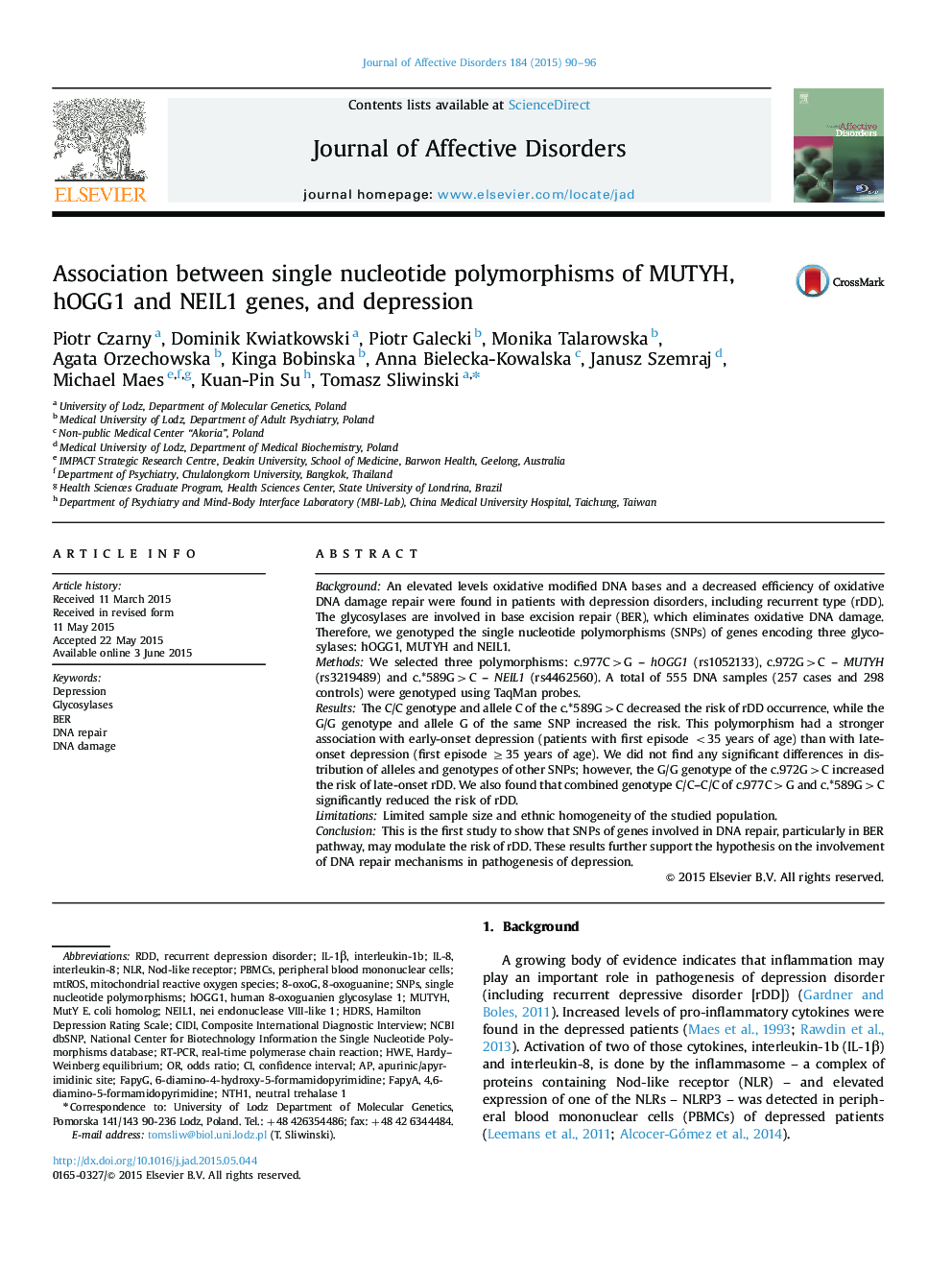| Article ID | Journal | Published Year | Pages | File Type |
|---|---|---|---|---|
| 6231247 | Journal of Affective Disorders | 2015 | 7 Pages |
â¢Three SNPs of MUTYH, hOGG1 and NEIL were correlated with depression.â¢The NEIL1 SNP was associated with depression occurrence.â¢The combined genotype C/C-C/C of NEIL1and hOGG1 SNPs decreased risk of depression.â¢SNPs of genes involved in DNA damage repair may modulate the risk of depression.â¢Results support hypothesis on involvement of DNA damage in depression pathogenesis.
BackgroundAn elevated levels oxidative modified DNA bases and a decreased efficiency of oxidative DNA damage repair were found in patients with depression disorders, including recurrent type (rDD). The glycosylases are involved in base excision repair (BER), which eliminates oxidative DNA damage. Therefore, we genotyped the single nucleotide polymorphisms (SNPs) of genes encoding three glycosylases: hOGG1, MUTYH and NEIL1.MethodsWe selected three polymorphisms: c.977C>G - hOGG1 (rs1052133), c.972G>C - MUTYH (rs3219489) and c.*589G>C - NEIL1 (rs4462560). A total of 555 DNA samples (257 cases and 298 controls) were genotyped using TaqMan probes.ResultsThe C/C genotype and allele C of the c.*589G>C decreased the risk of rDD occurrence, while the G/G genotype and allele G of the same SNP increased the risk. This polymorphism had a stronger association with early-onset depression (patients with first episode <35 years of age) than with late-onset depression (first episode â¥35 years of age). We did not find any significant differences in distribution of alleles and genotypes of other SNPs; however, the G/G genotype of the c.972G>C increased the risk of late-onset rDD. We also found that combined genotype C/C-C/C of c.977C>G and c.*589G>C significantly reduced the risk of rDD.LimitationsLimited sample size and ethnic homogeneity of the studied population.ConclusionThis is the first study to show that SNPs of genes involved in DNA repair, particularly in BER pathway, may modulate the risk of rDD. These results further support the hypothesis on the involvement of DNA repair mechanisms in pathogenesis of depression.
